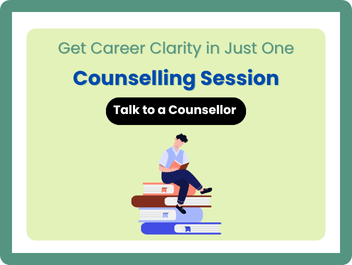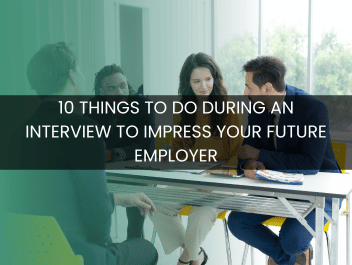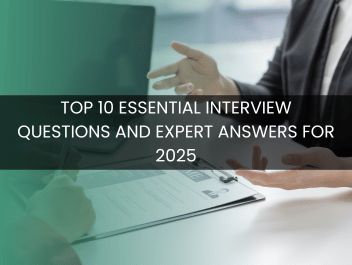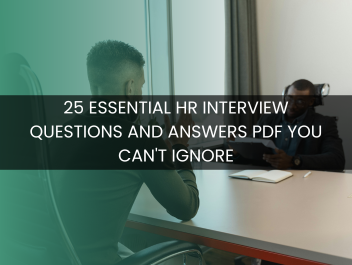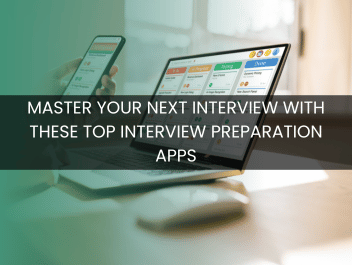
Mastering Interview Questions for HR Position with Answers: Strategies for Success
Navigating the daunting waters of HR interviews can be intimidating, but mastering interview questions for HR positions with answers can significantly bolster your confidence and chances for success. Understanding the pivotal role of human resources in an organization is key, as HR professionals are crucial for fostering a healthy work environment and aligning the workforce with company goals. This guide will walk you through the most common human resources questions and provide strategic answers to ensure you shine in your next HR interview.
Human resources professionals are the backbone of any organization, ensuring smooth operations, employee satisfaction, and compliance with regulations. From resolving conflicts to implementing policies, the responsibilities of HR are vast and nuanced. Knowing how to prepare for questions about your strengths, conflict resolution skills, and familiarity with HR software is crucial as they are often at the top of interviewers' lists.
This article delves into the intricacies of interview questions for HR positions with answers, presenting you with common, situational, and technical questions coupled with strategies for crafting your responses. With practical tips like the STAR method and active listening, you're equipped to leave a memorable impression. Welcome to your roadmap to mastering HR interviews, provided by mindgroom.in.
Table of Content
Understanding the Role of HR
The human resources department plays a pivotal role in any organization. Often viewed as the backbone, HR ensures that the workforce is efficient, motivated, and aligned with company goals. HR professionals manage hiring processes, solve interpersonal conflicts, and support personal growth and career paths. Their work affects every employee and can significantly impact the organization's overall culture and productivity.
Importance of HR in an Organization
In every company, human resources functions as both a support and a catalyst. With responsibilities ranging from recruiting top talent to enforcing company policies, HR sets the stage for employees to thrive. Effective HR practices ensure smooth communication and foster a positive company culture. Moreover, HR professionals drive personal and professional growth, helping employees acquire relevant skills needed for their dream jobs. In short, HR is essential for cultivating a productive and satisfying workplace environment.
Key Responsibilities of HR Professionals
HR professionals wear many hats in an organization. They guide the hiring process, ensuring that the right talent joins the team. Their communication skills help solve difficult situations and resolve interpersonal conflicts. HR oversees company policies, ensuring compliance and consistency. They also focus on organizational skills and time management to enhance productivity. Furthermore, HR plays a crucial role in leadership development, helping employees improve their leadership skills for handling challenging situations. By nurturing a culture of continuous learning, HR professionals contribute to both individual and organizational success.
Common Interview Questions for HR Positions
When you step into an interview for a human resources position, you'll encounter a unique set of human resources questions. These are tailored to probe your interpersonal skills, technical skills, and understanding of the hiring process. Preparing for these interviews involves anticipating common HR interview questions that can uncover your capabilities in managing challenging situations and dealing with company culture. Let's delve into these interview questions for HR position with answers that will help you stand out.
Tell me about yourself
Starting an interview, this question is designed to gauge your ability to articulate your career path and personal growth. A common sample answer should include an overview of your current company experience, relevant skills, and your drive for continuous learning. For instance, you might mention, "I have spent the last five years developing my problem-solving skills in recruitment and employee relations, which has prepared me for this role." This helps to position your previous role as a stepping stone to your dream job in HR.
What are your strengths and weaknesses?
HR candidates must demonstrate self-awareness and introspection. When detailing your strengths, focus on qualities like strong communication skills, leadership skills, and organizational skills. For weaknesses, choose something that you've actively worked on improving. A sample answer might be, "One of my strengths is my ability to communicate effectively with teams to achieve common goals. I've also worked on improving my time management skills by using structured planning methods."
Why do you want to work in human resources?
This question assesses your passion for the HR field and how well you align with the company's values. Highlight how your career path intersects with your ambitions in human resources, like fostering a positive company culture or enhancing employee engagement. A fitting response could be, "I want to work in human resources because I am passionate about helping employees reach their full potential through opportunities for professional growth. Ensuring alignment with company policies excites me as it adds value to the overall success."
How do you handle conflict in the workplace?
Conflict management is critical in HR roles. This question invites you to share your solutions for handling difficult situations. Emphasize problem-solving skills and interpersonal skills, such as listening and negotiation. An appropriate answer might be, "I address workplace conflicts by first understanding each party's perspective. By fostering open communication, I aim for a resolution that supports both personal and organizational goals. My leadership style focuses on collaboration to ensure everyone is heard."
By preparing these interview questions for HR position with answers, you'll be well-equipped to handle any human resources questions during the interview process and showcase your ability to thrive in a dynamic work environment.
Situational and Behavioral Questions
In human resources, situational and behavioral questions are key. These questions help assess an applicant's ability in various scenarios, from managing difficult employees to implementing new policies. HR professionals rely on these questions to understand how potential employees handle challenges, make decisions, and fit into company culture. They reveal both soft skills and problem-solving skills. In an HR interview, understanding how a candidate navigated previous roles can provide insight into their technical and leadership skills. Below, we delve into the intricacies of answering these human resources questions.
Describe a time you had to handle a difficult employee.
Handling a difficult employee can be one of the more challenging situations in HR. As an HR professional, you may often encounter employees struggling with company policies or exhibiting poor behavior. It's essential to have strong communication and interpersonal skills to address these issues. You must maintain professionalism while steering the conversation towards resolution.
Sample Answer: "In my previous role, I managed an employee struggling with tardiness. I requested a one-on-one meeting to understand any underlying issues. Turns out, their commute was affecting their arrival time. I worked with them to adjust their start time, aligning with company policies. This not only solved the problem but also improved their performance."
How would you implement a new HR policy?
Implementing a new HR policy requires excellent organizational skills and an understanding of the current company culture. It is crucial to ensure all employees understand the new policies and are on board with the changes. An HR professional must communicate changes clearly and provide training if needed—to minimize resistance and maximize compliance.
Sample Answer: "To implement a new HR policy, I first analyze how it aligns with our strategic goals. Then, I communicate the policy across all levels, using meetings and written documentation. I encourage feedback and address concerns to foster understanding. Training sessions are also crucial. I schedule follow-up meetings to ensure the policy's integration and address any ongoing issues."
Share an example of a successful recruitment strategy you utilized.
Recruitment is a critical aspect of HR, requiring creativity and strategic planning. A successful strategy not only attracts top talent but also aligns with the company's vision. By leveraging different platforms and conducting a thorough interview process, you can ensure the hiring process is efficient and effective.
Sample Answer: "In a past role, I revamped our recruitment strategy by increasing our presence on social media. We targeted platforms where our ideal candidates were most active. Additionally, I streamlined our interview process to include situational and behavioral questions focused on problem-solving skills. This approach shortened our time-to-hire and improved the candidate quality significantly, aligning with our company's goals."
These examples showcase the relevant skills HR professionals apply in various scenarios, emphasizing continuous learning and adaptability in their career path. Empowered by their experiences, HR experts can tackle any challenge proactively, fostering personal and professional growth within their roles.
Technical Questions for HR Candidates
Technical questions for HR candidates are an essential part of the interview process. These questions help evaluate a candidate’s ability to use tools and systems crucial for human resources functions. Understanding how potential hires interact with HR software or stay current with labor regulations ensures they are equipped for the role. Let's delve into some common human resources questions to gauge skills and capabilities. Using real-world scenarios and examples can demonstrate a candidate’s problem-solving skills, technical skills, and time management skills, which align with job descriptions and company culture.
What HR software tools have you used?
Interviewers often ask HR candidates about their experience with HR software tools. This question assesses their technical skills and familiarity with technology used in managing HR functions. In response, candidates should list the HR software they’ve used, such as Applicant Tracking Systems, payroll software, or performance management systems. They should detail their experience and how these tools improved efficiency and streamlined processes in their previous role.
Sample Answer: "In my current company, I have extensively used Workday for managing employee data and ADP for payroll processing. These tools allowed for seamless integration and real-time data updates, which improved our decision-making processes and organized company policies regarding employee management."
How do you stay updated with labor laws and regulations?
Staying updated with labor laws and regulations is critical for HR professionals. Changes in laws can affect company policies and the overall hiring process. Candidates who prioritize continuous learning and professional growth are usually more effective in their role. Understanding the importance of being aware of labor laws shows preparedness for handling challenging situations and adapting quickly to new compliance requirements.
Sample Answer: "I regularly subscribe to newsletters from labor law websites and participate in webinars and workshops focused on employment law updates. Networking with other HR professionals and attending conferences keeps me informed about any changes, ensuring I can support our organization’s compliance efforts effectively."
Effective as it may be to keep abreast of new regulations, ensuring these practices are integrated into the workplace is equally important. This ensures a strong alignment with both organizational goals and a safe working environment, contributing to personal growth and professional advancement within the field of human resources.
Tips for Answering Interview Questions Effectively
Navigating through an HR interview requires a strategic approach. Knowing how to effectively answer interview questions can make a significant difference in leaving a positive impression. Each response should reflect your relevant skills, Communication skills, and alignment with the company culture. It's essential to be prepared to discuss previous roles, your soft skills, leadership style, and problem-solving skills. By understanding these elements, you can showcase your fit for the position and your potential for professional growth within the company. Let's explore the key techniques to optimize your responses to common HR interview questions effectively.
Use the STAR Method
The STAR method is a powerful tool for structuring your answers to interview questions. STAR stands for Situation, Task, Action, and Result. This approach helps you articulate your experiences and achievements in a clear and compelling way. Start by setting the scene with the Situation and Task. Describe the challenging situations or difficult situations you faced in your previous role. Then, explain the Actions you took, highlighting your relevant skills and how you tackled the issue. Finally, reveal the Result, showcasing the positive outcomes achieved, emphasizing your problem-solving skills and potential for personal growth. Mastering this method can help you answer technical skills and human resources questions with confidence and clarity.
Practice Active Listening
Active listening is a crucial aspect of the interview process. It not only demonstrates your Communication skills but also shows your respect for the interviewer. To practice active listening, focus on the interviewer’s words and body language. This helps you understand the context of the questions better and formulate thoughtful responses. Reflect back their key points to confirm your understanding, and take a moment to contemplate before answering, especially when faced with challenging situations. This practice ensures that your responses align with the company’s goals and expectations, enhancing your display of interpersonal skills and organizational skills.
Develop Smart Questions for the Interviewer
Developing smart questions is vital to demonstrate your interest in the company and gather insights into the role. Thoughtful questions reflect your continuous learning mindset and your ambition for career path advancement. Consider asking about the company's culture, common goals, or company policies. Inquire about your potential team, leadership skills, or how success is measured within the role. Questions about the organization's future plans or the hiring process can show your long-term interest. By developing smart, relevant questions, you exhibit time management skills and technical skills necessary for the HR position, paving the way for intelligent discussions that can substantially enhance your interview performance.
Adopting these strategies not only positions you better in the interview but also distinguishes you as a well-rounded candidate ready for both challenges and personal growth.
Closing Thoughts
Closing thoughts give us the space to reflect on what we've learned and consider our next steps. It's essential to tie the discussed topics into a cohesive summary, providing valuable takeaways. When concluding, reiterating key points helps reinforce understanding and retention.
Here’s a quick list of what makes a strong closing:
- Summarize: Restate the main ideas succinctly.
- Emphasize: Highlight the most crucial points or insights.
- Reflect: Consider lessons learned or personal growth.
- Call to Action: Encourage further exploration or actions.
For instance, in a discussion about "Interview Questions for HR Position with Answers," you can summarize the importance of Communication skills and problem-solving skills within the hiring process. Understanding the company culture and aligning with common goals ensures you fit well into your dream job.
Remember, a powerful closing can leave a lasting impression, and guide professional growth by considering human resources questions thoughtfully. Keep your closing impactful with relevant skills and try to foresee any challenging situations you might encounter, turning them into opportunities for continuous learning and success.
FAQs
Navigating the job interview space, especially for HR roles, involves a deep understanding of human resources questions and the entire interview process. These FAQs offer insights into what interview questions for HR positions with answers involve, ensuring you're well-prepared for this critical stage of your career path. As you aim to fit into the company culture and demonstrate your relevant technical skills, consider exploring each guidance point carefully.
What are the common mistakes to avoid in HR interviews?
In HR interviews, it's pivotal to avoid mistakes that can hinder your hiring process success. One common blunder is not researching the company thoroughly. Understanding the company policies and its culture can significantly affect your performance in an interview. Without this knowledge, you may struggle to align your responses with the organization's goals.
Another mistake is underestimating the importance of soft skills, such as communication skills and interpersonal skills. These are essential for HR roles where interaction with various stakeholders is frequent. Not preparing sample answers for typical HR questions can leave you fumbling during the interview. This preparation shows your readiness and eagerness for the role.
Lastly, failing to express your problem-solving skills or not discussing how you handle challenging situations can leave a gap in your interview responses. By addressing these areas, you build a solid foundation for a successful interview.
How can I prepare for HR interview questions?
Preparation for HR interview questions begins by understanding the role's requirements and how your experience aligns with them. Start by reviewing the job description carefully to identify the key soft skills and technical skills needed. Reflect on your previous roles and prepare answers that highlight your relevant skills and achievements.
Focus on your leadership style by thinking of instances where you've demonstrated leadership skills and time management skills. This reflection helps reinforce your personal growth and readiness for HR challenges.
Additionally, practice common HR interview questions by crafting thoughtful responses. Consider how you've managed difficult situations, adjusted to a company's culture, or improved your problem-solving skills. This practice boosts your confidence and helps you communicate effectively during the interview process.
What unique skills should an HR professional highlight in an interview?
HR professionals should highlight a blend of technical and soft skills to stand out in interviews. Key interpersonal skills such as empathy, negotiation, and active listening are vital for managing employee relations and understanding different perspectives.
Organizational skills are essential, as HR roles often require multitasking and managing various responsibilities smoothly. Demonstrating these skills shows your capability to handle the complexities of the job efficiently.
Leadership skills, alongside the ability to adapt to different leadership styles, can also set you apart. An HR professional should illustrate instances of guiding teams, making strategic decisions, and driving organizational growth. These attributes demonstrate your potential for professional growth and your ability to contribute to the company's success.
By emphasizing these unique human resources questions and skills during interviews, you increase your chances of landing your dream job in HR, ensuring alignment with the company's goals and fostering your career path.
Looking For Job Satisfaction on the long run?
Please feel free to contact our experts
Call to ask any question
+91-9319336222Monday to Saturday
(9:00 AM to 8:00 PM)Resent Blogs
10 Things to Do During an Interview to Impress Your Future Employer
Learn MoreCrafting Your Personal Narrative: A Guide to Writing About Yourself
Learn MoreTop 10 Essential Interview Questions and Expert Answers for 2025
Learn MoreAce Your Next Interview: Essential Questions and Expert Answers for 2025
Learn MoreFirst-Time Manager Interview: Crucial Questions and Strategies for Success
Learn More150 Essential General Knowledge Questions for Interviews in 2025
Learn MoreMaster the Google Interview: Strategies for Success in 2025
Learn MoreHow Can You Describe Yourself Professionally? 5 Key Strategies You Need to Know
Learn MoreMastering the Art of How to Take Interview: Essential Techniques for Success
Learn More25 Essential HR Interview Questions and Answers PDF You Can't Ignore
Learn More7 Tips to Ace Your HR Screening Round and Land Your Dream Job
Learn More10 Essential Tips for Acing Your Interview Exam
Learn More5 Unique Interview Format Examples to Stand Out in Your Next Interview
Learn More5 Powerful Techniques for a Memorable Interview Introduction
Learn MoreMaster Your Next Interview with These Top Interview Preparation Apps
Learn MoreMastering the Art: Top Interview Questions for 12th Class Students
Learn More7 Must-Know Interview Questions for Freshers to Ace Your Job Hunt
Learn MoreMastering Interview Questions for HR Position with Answers: Strategies for Success
Learn More12 Essential Interview Questions for Recruiter Position You Should Prepare For
Learn More10 Must-Know Interview Questions UK Employers Love to Ask
Learn More10 Creative Interview Writing Examples to Spark Your Imagination
Learn More15 Essential Managerial Interview Questions for Fresher
Learn MoreHow to Ace Your Next Mock Interview: Tips and Strategie
Learn More7 Key Strategies for a Successful Mock Interview Sessio
Learn MoreThe Ultimate Guide to Model Interview Questions: What Y
Learn More5 My Self Question Exercises to Unlock Your True Potent
Learn More10 Normal Questions That Can Spark Deep Conversations
Learn More15 Essential Personal Interview Questions for Freshers
Learn More10 Essential Phone Interview Questions You Can’t Afford
Learn More15 Essential Sales Interview Questions and Answers for
Learn More7 Key Situational Interview Questions Every Employ should ask
Learn More15 Essential Software Developer HR Interview Questions You Need to Prepare For
Learn MoreMastering the Technical Interview: Essential Questions and Answers
Learn MoreTop Strategies for Responding to Tell Me About Yourself in a Student Interview
Learn MoreTop 10 Interview Questions and Expert Answers
Learn MoreMastering the Art of Interviewing: 50 Tough Questions and Smart Answers
Learn MoreConnet Us
Unlock Your Dream Career Potential - Get Expert Advice From Our Counselling Experts
